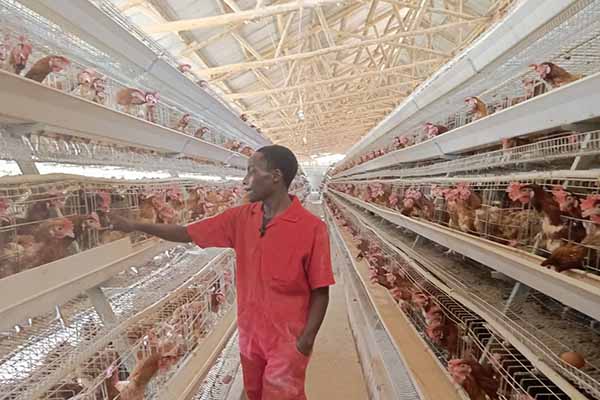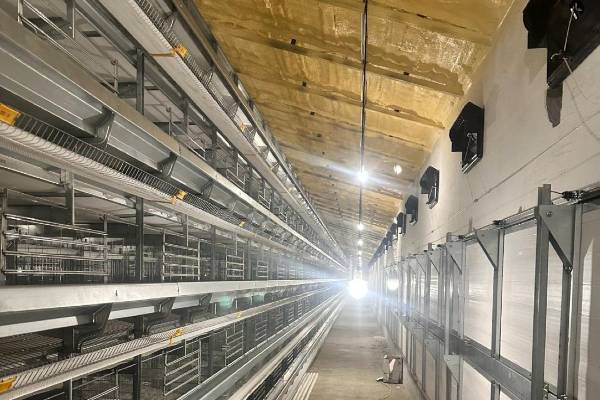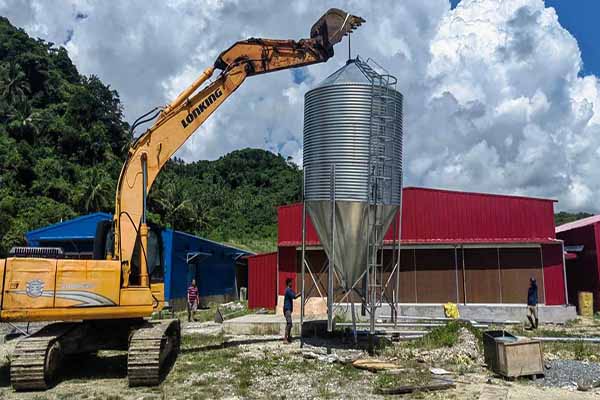Kenya Chicken Equipment Maintenance Service: The Ultimate Guide to Phone-Based Assistance
Time : 2025-07-01
Kenya’s poultry industry has grown exponentially over the years, with farmers increasingly relying on modern chicken equipment for enhanced productivity. To ensure these systems run smoothly, timely maintenance and reliable support are crucial. In this comprehensive guide, we will delve into the importance of maintaining chicken equipment, how to seek professional assistance through phone-based services, and the best practices for efficient communication.
The Importance of Equipment Maintenance
Maintaining chicken equipment is not just about prolonging the life of the machinery but also about ensuring the health and safety of the birds. Well-maintained equipment contributes to the overall well-being of the flock, leading to increased production and reduced losses. Here are some key reasons why regular maintenance is essential:
- Prevents equipment failures and breakdowns that could lead to costly repairs or even the need for new equipment.
- Ensures food safety by reducing the risk of bacteria and pathogens that could contaminate the birds or their products.
- Boosts the efficiency of the equipment, reducing energy consumption and minimizing operational costs.
- Improves worker safety by ensuring the equipment is in optimal working condition.
Common Issues in Chicken Equipment
Chicken equipment, such as feeders, waterers, and climate control systems, is subject to various issues over time. Some of the most common problems include:

- Feeders and waterers clogging, leading to inadequate access to feed and water.
- Temperature control systems failing, causing stress to the birds and decreased production.
- Mechanical malfunctions in conveyor belts and grading systems.
- Electrical issues with lighting and ventilation systems.
Understanding these issues is crucial for effective maintenance and troubleshooting. Professional phone-based services can help farmers diagnose and address these problems quickly and efficiently.
Seeking Phone-Based Maintenance Services
In Kenya, phone-based maintenance services have become increasingly popular, providing farmers with convenient access to expert advice. These services offer the following benefits:
- 24/7 availability for immediate assistance in case of emergencies.
- Expert knowledge of chicken equipment, including the latest models and technologies.
- Customized maintenance schedules tailored to the specific needs of your farm.
- Convenience and cost-effectiveness compared to on-site visits.
Here’s how you can find and engage with phone-based maintenance services:
1. Research Local Providers
Start by researching maintenance services available in your area. You can ask for recommendations from fellow farmers, attend industry events, or search online directories for chicken equipment maintenance companies in Kenya.
2. Check for Credentials
Ensure that the phone-based service you choose is reputable and experienced in poultry equipment. Check for certifications, customer reviews, and testimonials from satisfied clients.
3. Establish a Communication Plan
Before seeking maintenance services, establish a communication plan with the provider. Make sure you understand how to reach them in case of an emergency and discuss preferred methods of communication, such as phone, email, or messaging apps.
Best Practices for Effective Communication
When using phone-based maintenance services, effective communication is key to resolving issues quickly and efficiently. Here are some best practices to consider:
1. Be Prepared with Details
Before contacting the service provider, gather as much information as possible about the equipment and the problem y ou are experiencing. This includes the type of equipment, the symptoms of the problem, and any troubleshooting steps you have already taken.
ou are experiencing. This includes the type of equipment, the symptoms of the problem, and any troubleshooting steps you have already taken.
2. Provide Clear Descriptions
When explaining the issue to the service representative, be as clear and concise as possible. Use specific terms and describe the problem in a way that can be easily understood.
3. Keep Communication Open
Ensure that you maintain open lines of communication with the service provider. If additional information is needed or if follow-up actions are required, be prepared to provide it promptly.
4. Document Conversations
It is advisable to document conversations with the maintenance service provider for future reference. This can be in the form of email exchanges, voice memos, or notes taken during phone calls.
Conclusion
Regular maintenance and reliable phone-based support are vital for the smooth operation of chicken equipment in Kenya. By understanding the importance of maintenance, identifying common issues, and engaging with professional phone-based services, farmers can ensure optimal performance and productivity. With effective communication, farmers can resolve issues quickly and efficiently, leading to healthier birds and increased profits.












